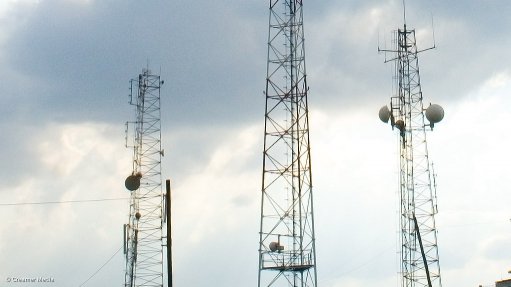
Photo by: Duane Daws
As utilities worldwide move to modernise their networks and enhance efficiencies through the use of telecommunications, the Utilities Telecom Council (UTC) has launched an Africa-focused division to deal with the energy security challenges facing utilities and energy providers across the continent.
The global group formed the African Utilities Telecom Council (AUTC) during the third Africa Utilities Telecoms Summit, being held in Sandton this week. The mandates and directives, as well as the proposed structures, governance and funding of the African unit would be outlined during the event.
UTC, which aimed to create a favourable business, regulatory and technological environment for utilities that owned, managed or provided critical telecommunications systems for their core business, believed the future of “smart utilities” was “totally reliant” on the provision of economical telecommunications suited to the needs of the electricity, oil and gas and water sectors.
However, Africa currently had no secure and reliable networks focusing on utilities – an increasingly critical element in the energy and utility value chain.
“AUTC is an opportunity for everyone delivering mission-critical services to come together with a common aim of driving better value and improved quality of services for businesses though the use of new telecommunications technologies and services,” UTC global development director Peter Moray explained.
Speaking to Engineering News Online on the sidelines of the summit, he explained that it was likely the African division would be managed by an undisclosed association management company in Johannesburg that had ample experience with providing back office services for similar industry bodies.
The identified company would service potential members across Africa, collect service fees and support the actions of the board of directors, which would be made up of employees from the member companies.
National utilities and regional distributors would qualify to nominate a member of their company to the AUTC board upon membership.
Moray indicated that, based on the responses obtained from the summit, it was possible that the unit would start operations early next year.
UTC wanted to ensure AUTC would be self-sustaining, with enough members, from the start, as the parent body was financially liable “if anything went wrong”.
But indications from Africa utilities about becoming members were positive, particularly as membership offered many benefits with international reach, Moray told Engineering News Online.
It was expected that AUTC would provide knowledge and experience for directors, managers and engineers across the continent seeking the most appropriate telecommunications solutions for their businesses.
UTC president and CEO Connie Durcsak said a lot of “modernisation” was under way worldwide to address the ever-increasing need for improved reliability and situational awareness, bolstered security, seamless interoperability with first responders and mutual aid communities, mitigation of utilities’ environmental impacts, the enhancement of efficiencies to reduce costs, the integration of distributed energy resources and mitigation of the impact of new entrants to protect revenue and improve return on investments.
Modernisation remained a developing concept, with utilities, in a way, “making it up” as they progressed within a transforming industry.
Utilities were increasingly seeking out greater efficiency throughout the energy life cycle of production, transmission, distribution and consumption of energy by commercial and residential users, with emphasis on reducing the use of fossil fuels and increasing renewable-energy generation.
The stakeholders aimed to improve the quality of services and reduce outage times, while improving energy network use and management.
Further, much focus was being placed on the implementation of smart-metering solutions to improve customer billing, protect revenue and improve returns on investments, through the use of microgrids, either as standalone units or running interconnected with primary grids.
Durcsak commented that it was expected that, between 2014 and 2023, global spending on smart grid communications networking infrastructure and equipment would reach about $30-billion.